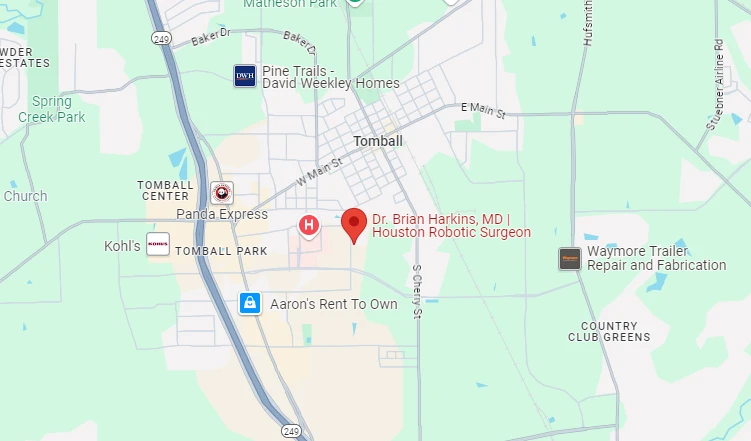
Choosing the right board-certified general surgeon who performs colon and rectal surgeries for your first visit in Greater Houston can feel daunting. Whether you live in West Houston, North Houston, or The Woodlands, a thorough, patient-centered consultation sets the stage for the best possible care. Below you'll find a detailed walk-through of your initial visit—covering scheduling, examination, and treatment options—plus insights on minimally invasive surgery, robotic techniques for colon and rectal procedures, and answers to frequently asked questions.
If you're wondering what happens at your first visit to a colon and rectal specialist in Houston, TX, you're not alone. This initial appointment is often more conversation than crisis—focused on your concerns, your history, and planning the next steps toward diagnosis or treatment.
In Greater Houston, appointments fill quickly. Call early, confirm your referral requirements, and make an appointment with Dr. Harkins or another board-certified colorectal surgeon at Houston Methodist or a nearby center. Gather your records, jot questions, and arrange a ride if sedation is possible. Arriving organized lets the care team focus on your bowel health, not paperwork.
| Item | Reason | Pro Tip from a Skilled Surgeon |
|---|---|---|
| Insurance card & photo ID | Verify in-network status across general surgery and cancer surgery services | Call one day prior |
| Medication list | Prevent drug interactions & optimize enhance recovery pathways | Include vitamins & CBD |
| Prior colonoscopy DVD | Gives the colon and rectal surgeon a visual baseline | Carry on USB |
| Symptom diary | Helps correlate diet and bowel movement changes | Phone apps work great |
| Support person | Another set of ears for complex questions about colorectal surgery | Pick a trusted friend |
Upon arrival, friendly staff check you in via encrypted tablets. Many rectal surgeons in Houston feature calming music, Wi-Fi, and coffee—small comforts that transform a nervous morning into a manageable routine. Review your notes while waiting; patients often say “he’s the best, answered all my questions and concerns” when they walk in prepared.
Your doctor—often described in patient reviews as an excellent surgeon who “listens to your concerns”—will sit eye-level and cover:
Honest details help differentiate benign colorectal issues from serious disease and support best possible outcomes.
The exam involves abdominal palpation and a gentle digital rectal check. Relaxed breathing minimizes discomfort. If warranted, an anoscopy or flexible sigmoidoscopy provides real-time visuals of the lower rectum and colon. Early detection of a hidden fistula or small polyp can spare you later, more invasive cancer surgery.
If surgery becomes your treatment option, your board-certified colorectal specialist will explain differences among open surgery, laparoscopic and robotic approaches. Robotic surgical techniques often offer smaller scars, less pain, and a quicker return to normal activities.
You may leave with orders for:
Most centers throughout the Houston area offer on-site imaging, making life easier for the greater Houston community.
Before you leave, your surgeon summarizes findings and gives written instructions—anything from fiber therapy to scheduling robotic colorectal resection. A nurse coordinator provides direct numbers for urgent concerns, affirming the clinic’s commitment to best care.
Billing coordinators clarify whether the facility, anesthesiologist, and pathologist are all in-network. Knowing this in advance prevents surprise bills and supports smooth recovery after surgery.
A first consultation with a best colorectal surgeon is more conversation than crisis. By arriving prepared, asking pointed questions, and understanding next steps, you transform anxiety into a proactive journey toward digestive wellness. “By far the best doctor I have ever seen—strongly recommend Dr. Harkins,” says one patient who felt empowered from day one. Make your appointment today and experience compassionate, evidence-based care of colorectal conditions.
Your first visit involves a detailed conversation about your symptoms and health history, a gentle physical exam, and discussion of possible tests like colonoscopy. Your surgeon will create a personalized treatment plan and answer any questions to ensure you're comfortable and informed.
If you see bright-red blood or dark, tarry stools, call your doctor right away. Most surgeons recommend diagnostic colonoscopy within weeks, not months, because early evaluation detects or rules out colorectal cancer. Prompt testing also helps identify benign causes like hemorrhoids, ensuring you receive the correct treatment without delay.
Not necessarily. Robotic surgery offers enhanced dexterity and 3-D vision, which can be beneficial for deep pelvic operations. However, straightforward cases may be equally safe with laparoscopic or even open approaches. Your surgeon reviews anatomy, health status, and cost to recommend the treatment option that balances safety, recovery time, and insurance coverage.
While diet, stress management, and smoking cessation improve symptom control, most patients with Crohn’s or ulcerative colitis still require medical therapy—and sometimes surgery—to achieve remission. A multidisciplinary plan combining lifestyle tweaks, medications, and regular monitoring offers the highest chance of sustained relief and mucosal healing.
Advances in colon and rectal techniques mean temporary or permanent colostomies are less common today. Your individual risk depends on tumor location, stage, and blood supply. Many low-rectal cancers now qualify for sphincter-saving, minimally invasive surgery, allowing patients to resume normal bowel movements after healing.
Enhanced-recovery protocols, pain pumps, and early ambulation often reduce hospitalization to two or three days for healthy individuals. Patients typically walk the evening of surgery, start liquids within 24 hours, and discharge once pain is controlled, bowel function returns, and lab work looks stable.
Modern anesthesia, nerve blocks, and non-narcotic regimens have significantly reduced post-op pain. Most patients describe discomfort as manageable, especially after minimally invasive or robotic colorectal procedures. Your care team tailors medications to keep you moving, which in turn speeds healing and lowers complication risks.
Light walking starts the day of surgery. For strenuous activities—running, weightlifting, or core workouts—surgeons usually recommend waiting four to six weeks, depending on incision size and healing. Always follow personalized guidelines; overexertion too soon can trigger hernias or slow wound repair.
Most outcomes between laparoscopic and robotic approaches are comparable. If robotic tools aren’t covered, your surgeon can often perform the same operation laparoscopically with similar success. Discuss costs openly; financial counselors may negotiate rates or offer payment plans for uncovered services.
Follow-up frequency depends on diagnosis: hemorrhoids may only need a phone check-in after topical therapy, whereas rectal cancer survivors require ongoing exams, colonoscopies, and imaging for five years. Your surgeon will outline a personalized surveillance schedule to ensure early detection of recurrence or new disease.


Dr. Brian Harkins is a renowned surgeon specializing in advanced, minimally invasive, and robotic surgical techniques. With a dedication to innovation and personalized patient care, he has transformed countless lives by delivering exceptional outcomes.

I want a website like this, where do i start?